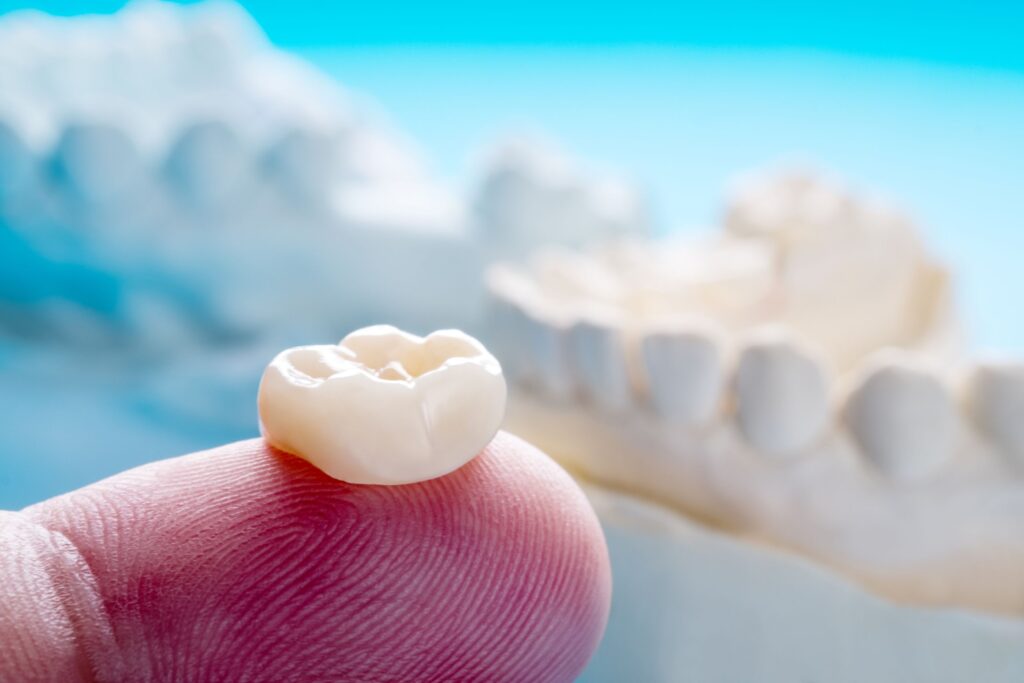
If you recently underwent a root canal or contacted your dentist to repair a decayed or damaged tooth, there’s a good chance they’ll want to provide a dental crown to fix it. These prosthetics can restore its appearance and functionality in circumstances that might otherwise require extraction and replacement, which comes with additional risks.
However, many patients hesitate to schedule this procedure because they’re worried it might hurt. Continue reading to learn more about what to expect from your dental crown appointment so you can see that there’s nothing to be afraid of!
What are Dental Crowns?
These tooth-shaped caps are protective coverings that your dentist bonds over an injured pearly white to shield it from additional breakage or infection. They’re usually made from durable materials like resilient ceramic or composite resin. Both options reflect light like enamel and can be customized to match the shade of your natural teeth for seamless results. Furthermore, they can last 15+ years if cared for correctly.
These restorations are often recommended to:
- Shield a decayed or damaged tooth from additional harm.
- Secure a traditional dental bridge in place.
- Hide a misshapen or stubbornly stained tooth to boost your confidence.
- Safeguard a tooth that has undergone a root canal from additional infection or injury.
Does Getting a Dental Crown Hurt?
It’s natural to wonder whether being fitted with a new tooth will cause discomfort, but thankfully, that’s not the case! Before beginning, your dental team will apply a local anesthetic to numb the area so that you feel at ease the entire time. Many providers also offer various options for sedation for overly anxious patients or those who struggle to sit still for more extended periods. Then, they’ll prepare your tooth by gently removing a small amount of enamel so your prosthetic fits properly.
Next, they’ll make digital impressions of your teeth that will be used to design your dental crown. The images and information are typically sent to a dental lab, which may take several weeks to return the finished product. You’ll likely be fitted with a temporary crown to safeguard your smile until it arrives.
You might experience some sensitivity afterward because the protective outer layer of your tooth was thinned, but this typically fades on its own after several days. Then, having your final restoration bonded in place is so straightforward that many patients don’t even need to be numbed!
Getting a dental crown is an incredibly common procedure and isn’t considered particularly painful, so there’s no reason to feel concerned about your upcoming appointment. If you’re still worried, you can discuss possible sedation with your dentist before you arrive.
About the Practice
At the Advanced Dental Treatment Center, you benefit from a team of dentists with decades of combined experience helping people build and maintain happy, healthy smiles. They provide a full array of services under one roof, so whether you require basic preventative care or need to fix a broken tooth, they can help. They put patient comfort first and offer multiple types of dental sedation to ease your anxiety or alleviate your aches. You can request an appointment on the website or call (414) 209-7465.

